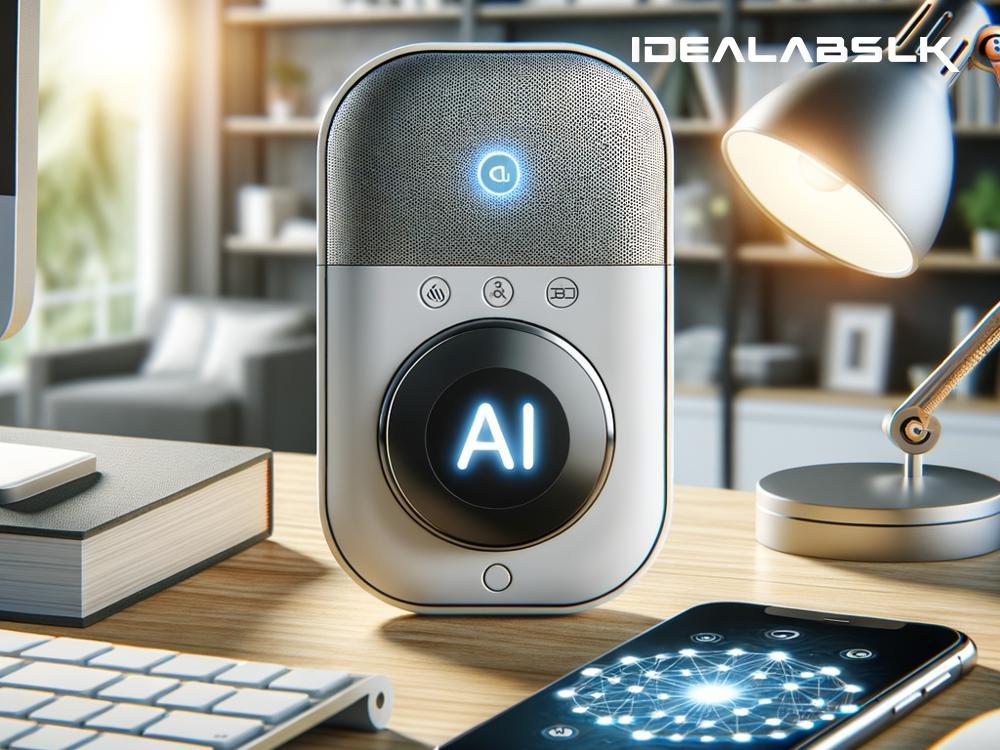Title: Simplifying Life: How AI Powers Smart Controllers for Remote Automation
In the ever-evolving world of technology, the integration of Artificial Intelligence (AI) into our daily devices is changing the way we interact with our surroundings and simplifying life in unprecedented ways. One of the fascinating advancements driven by AI is its application in compact smart controllers, especially designed for remote operations. These tiny but powerful gadgets are revolutionizing control systems, bringing convenience and efficiency straight into our hands, no matter where we might be. Let’s delve deep into how AI automates these remote features and what it means for users like you and me.
The Heart of Smart Controllers: AI at Work
Smart controllers, those handy devices often used to manage home systems like heating, lighting, or even multimedia, are becoming increasingly intelligent thanks to AI. AI, essentially, is a branch of computer science that aims to create machines or software that can think, learn, and adapt just like humans do but at an incredibly faster rate and with unwavering accuracy. By integrating AI, these compact devices can learn from your habits, make decisions, and even predict future actions to streamline their operations without requiring direct input all the time.
Understanding by Learning: The AI Advantage
One of the key features that AI brings to smart controllers is the ability to learn from user behavior over time. For instance, a smart thermostat can observe and understand your preferences for room temperatures at different times of the day or seasons and adjust automatically. This is possible through a process called machine learning, a subset of AI, where algorithms analyze vast amounts of data (your preferences, in this case) to identify patterns and make informed decisions.
Remote Features, Amplified by AI
The beauty of AI-enhanced smart controllers lies in their capability to offer comprehensive control remotely. Not only can you command these devices from anywhere using a smartphone app, but they also take proactive actions on their behalf. For example, AI can automate your home's lighting system to simulate occupancy while you’re away on vacation, thus acting as a deterrent to potential burglars. Or, consider smart locks that recognize family members and automatically lock or unlock the door as they approach or leave the house, adding a layer of security and convenience.
Predictive Maintenance: A Step Ahead
Another remarkable application of AI in smart controllers is predictive maintenance. This feature enables devices to anticipate faults or failures before they happen by continually monitoring their own performance and health. For instance, a smart HVAC (Heating, Ventilation, and Air Conditioning) controller can analyze its operation and alert you if it detects inefficiencies that might indicate upcoming malfunctions, substantially reducing the chances of sudden breakdowns.
Simplifying Complexities: User-Friendly Interfaces
Despite the complex technology underlying these AI-powered smart controllers, their interfaces are surprisingly user-friendly. Designers understand the importance of simplicity, enabling users to easily set up and customize settings through intuitive apps. This simplicity extends not only to daily operations but also integrates learning resources within the devices, offering tips and guidance based on your usage patterns to help you make the most of their capabilities.
Bridging Distances: The Remote Revolution
The hallmark of these smart controllers is their ability to bridge physical distances between the user and the device. Whether you’re in a different room or halfway across the world, AI-driven automation and remote control features ensure that managing your home’s systems is as effortless as a tap on your smartphone. This innovation not only enhances convenience but also ensures that you always stay connected to what matters most, be it your comfort, security, or energy efficiency.
Empowering Users: The Future is Now
As AI technology continues to mature, the potential for smarter and more intuitive control over our environments seems limitless. Compact smart controllers are just the tip of the iceberg, promising a future where technology anticipates our needs and seamlessly integrates into our lives to enhance comfort, security, and efficiency. The empowerment that comes from having such precise control and automation at our fingertips is transforming the very essence of what it means to live in a connected world.
In conclusion, the blend of AI in compact smart controllers is not just a technological evolution; it’s a lifestyle revolution. By automating remote features and learning from our patterns, these devices are setting a new standard for convenience and efficiency. As we move forward, one thing is for sure: the smart home revolution, powered by AI, is making our lives easier, one automated task at a time.

